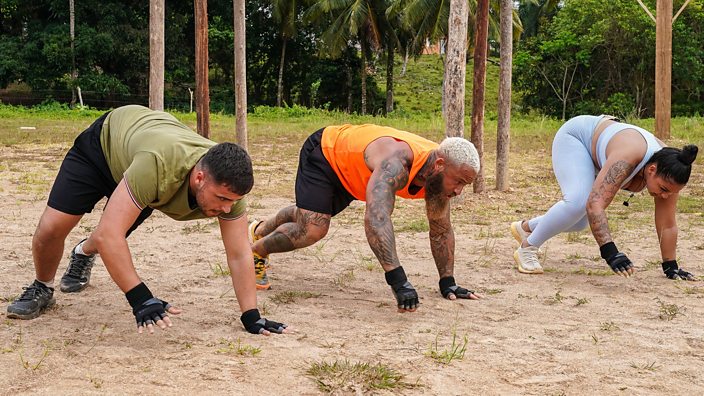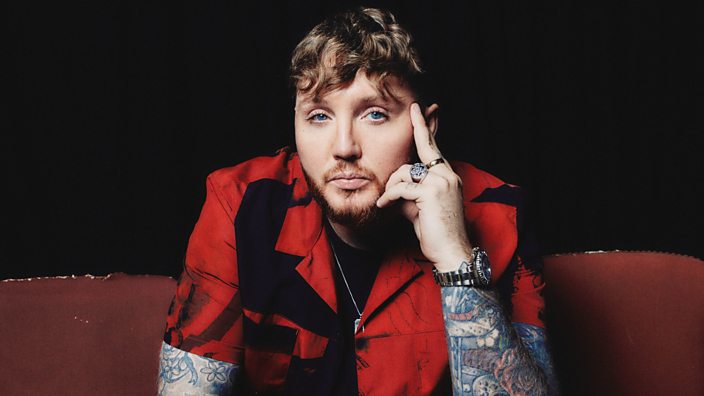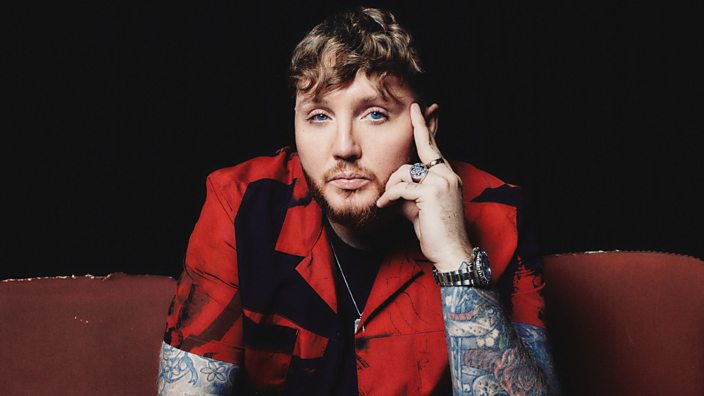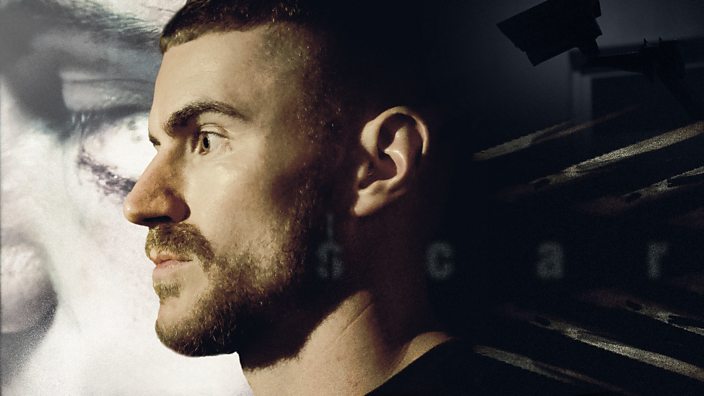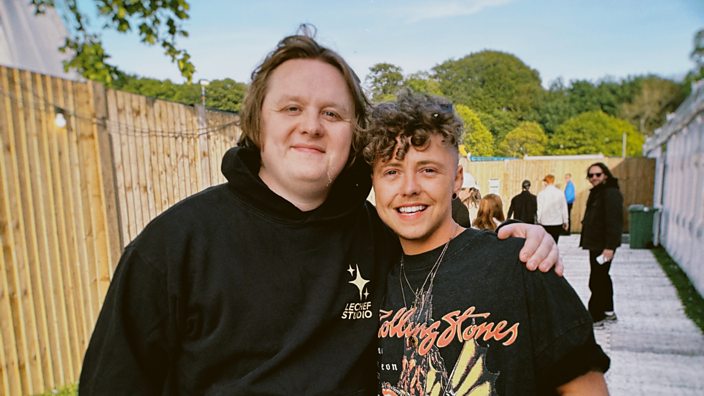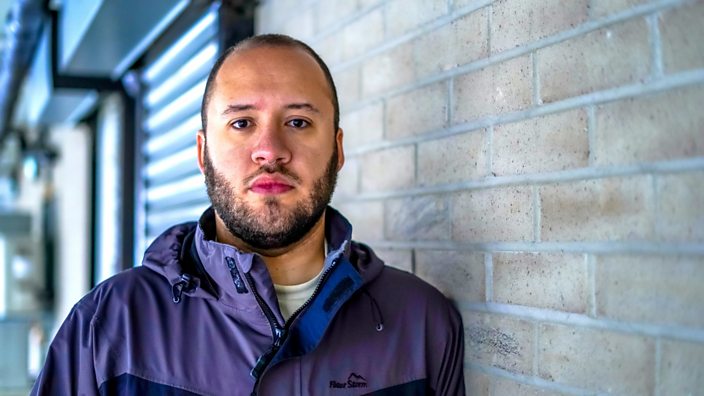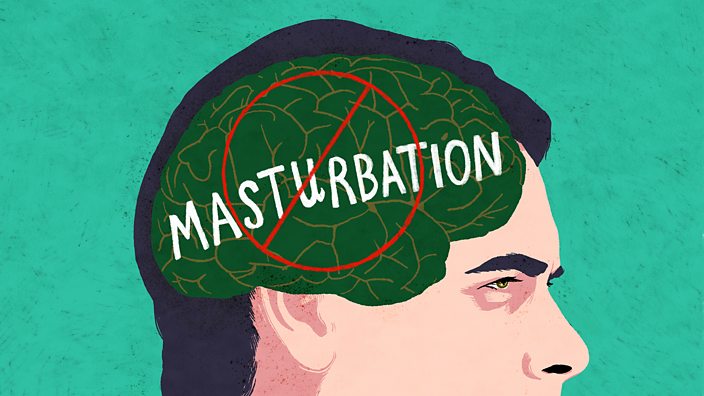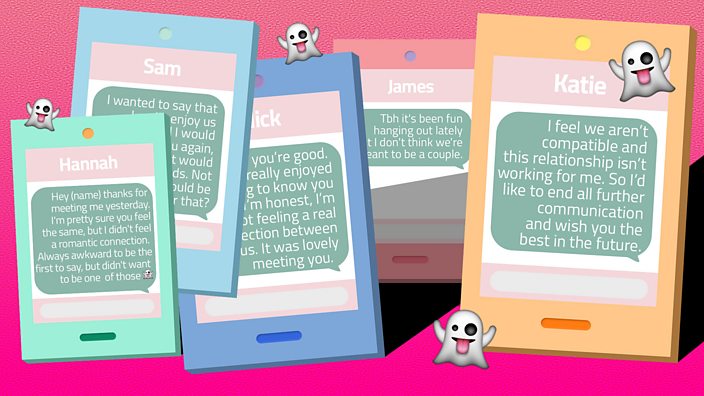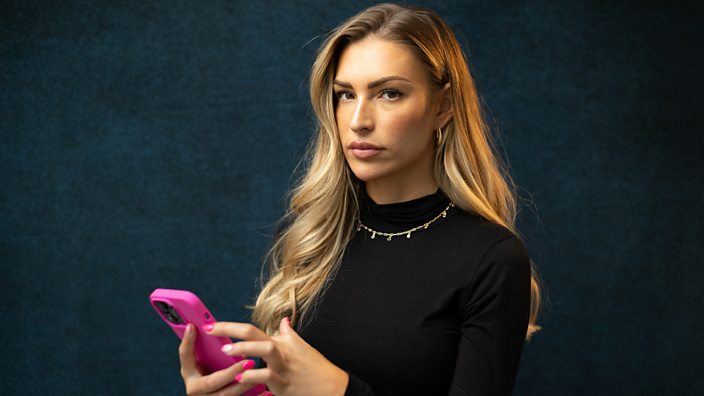 BBC/Summer Films/Samuel Lax
BBC/Summer Films/Samuel LaxZara McDermott: ‘I considered deleting social media after learning impact on disordered eating’
The eating disorder charity Beat says disordered eating - a term used to describe eating difficulties that don’t require a clinical diagnosis - is “becoming more common” and can often be the first signs of someone developing an eating disorder. Presenter and influencer Zara McDermott looks at the rise of disordered eating for a new BBC Three documentary.
Before Zara McDermott appeared on the reality show Love Island in 2018, she says she had a healthy relationship with food and exercise - and she’d never even looked at a calorie.
But finding fame on the popular dating show brought online trolls and bullying, with people commenting on her “body, waist, hips and legs” for the first time in her life.
“That is so inhumane and unnatural to have to go through,” the social media influencer and TV host says. “It made me start looking at myself differently and thinking, ‘Maybe I do need to look a certain way.’
“It really ruined my self-esteem in a lot of ways.”
With the support of friends and family who are fitness professionals, Zara, 25, began a diet and fitness journey - and documented this extensively on social media. She became “obsessed” with how she looked, she says, and felt a sense of gratification from the positive feedback she was getting online.
Zara was posting things like before-and-after weight loss pictures and documenting what she ate in a day. She says, at the time, that she didn’t understand the impact her content could be having on her millions of followers.
But Zara began to worry when girls as young as 16 were messaging her, saying: “I'm eating 800 calories a day and I'm not losing weight. Please help me.”
“I started to think, ‘Maybe this is the wrong thing to be doing and maybe something needs to change,’” Zara says. “Maybe I was slightly naive. I just thought, someone needs to look into this. Why is this happening? Am I feeding the problem? And also how can I be more responsible?”
What is disordered eating?
Zara, in her new BBC Three documentary, wanted to know more about the phenomenon of disordered eating. According to Tom Quinn from Beat, the UK's leading eating disorder charity, disordered eating doesn’t have a standard definition, but one common meaning of disordered eating is eating difficulties or behaviours that might not necessarily meet the criteria for a clinical diagnosis of an eating disorder.
While statistics about disordered eating are limited, Tom says, “the data we do have suggests that disordered eating is becoming more common”. He adds that the pandemic had a “devastating” impact on people with eating disorders, with Beat providing over three times more support sessions in 2021-2022 compared to pre-pandemic levels.
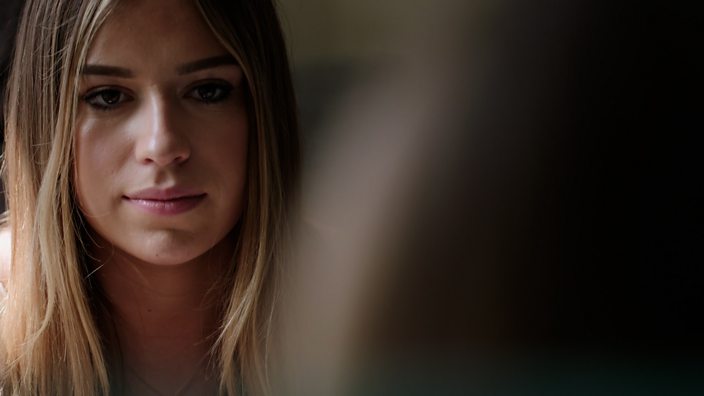 BBC / Summer Films
BBC / Summer FilmsZara put out a shout-out to her followers asking if anyone had struggled with disordered eating. She ended up travelling to Lincolnshire to meet university student Milly, who says her eating problems started with lockdown when she began to closely count the calories she was eating.
“I found myself getting more and more obsessive with it,” Milly says. “I think I’ve done it every day for the last year and a half, maybe two years. Every single day.”
“I wish I never calorie counted,” Milly says, before adding that she has even lost her period as a result of her disordered eating. She also found the experience to be very isolating. “I didn’t really say anything because it’s such a taboo topic.”
Tom says that signs of disordered eating can often lead to someone developing an eating disorder and that “the early stages of an eating disorder are a crucial period for preventing the illness from developing. We'd advise that anybody who is worried about their own health or a loved one should reach out to their GP.”
In March 2020, Lauren was out of work as a result of lockdown and found herself with lots of free time - so she turned to exercise and controlling her food intake. “Slowly but surely, it took over my life,” she says. “It just got a bit more intense and a bit more obsessive.”
She was calorie counting, cutting out entire food groups and doing more and more exercise, causing her to lose weight. Lauren’s disordered eating eventually progressed into a clinically-diagnosed eating disorder, anorexia.
Lauren’s parents eventually told her they were worried about her weight loss and by May 2022 she was admitted to an in-patient hospital, where she’s been ever since, being treated for anorexia.
“My parents said I was just like a shell of Lauren. It just took everything from me. I was not me at all. I had no personality. I didn't find anything funny. I was really short with everyone, because I was just so anxious all the time about food and eating.
“It put my whole life on pause. It's just been one of the worst things ever.”
Lauren says social media played a “massive” part in her eating disorder experience.
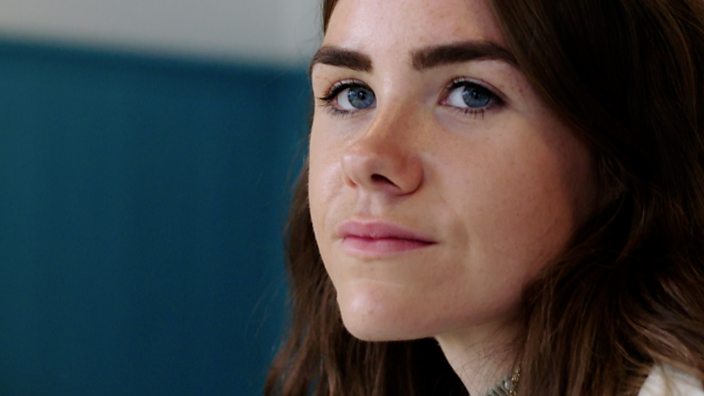 BBC / SUMMER films
BBC / SUMMER films“Having that time where I wasn't at work, I was just on my phone with a lot of TikTok and Instagram. I think the algorithm sort of went hand in hand with eating and exercise. I was following a lot of exercise influencers and people that were posting what they eat in a day.
“My whole For You page or Explore page would be completely on eating, exercise and how to lose weight. I couldn't get away from it. Every time I went on those social media sites, it was just constantly there.”
Tom says that while social media does not cause disordered eating or eating disorders, “it can exacerbate symptoms for someone who is unwell or contribute to eating problems for someone who is already vulnerable”.
Thanks to the treatment she’s receiving - including therapy sessions and working with nutritionists - Lauren is now doing much better. She also now tries to avoid spending as much time on social media and prioritises following her friends over people she doesn’t know.
‘I see how damaging it can be now’
Zara says being confronted so directly by young patients about her own use of social media made her consider getting rid of it entirely.
“I had a few days of actually just thinking, ‘I just genuinely want to delete my Instagram and never have it again because I'm just hurting people,” she says.
Zara adds that the biggest thing she learnt while making this film is about the responsibility she has to be more considerate about what she’s posting. And she now has a “rule book” for how she approaches social media. For example, she no longer posts “What I eat in a day” videos, she doesn’t put as much emphasis on calories when she’s posting recipes and she tries to present a more balanced view of her life.
“Now I look back at my Instagram page from a few years ago and I'm cringing a bit because I really used to do ab checks. How embarrassing!
“I've realised that my social media needs to be reflective of who I am. I'm not defined by the workouts I do or the food I eat. I don't want to feed into that culture any more. I see how damaging it can be now.”
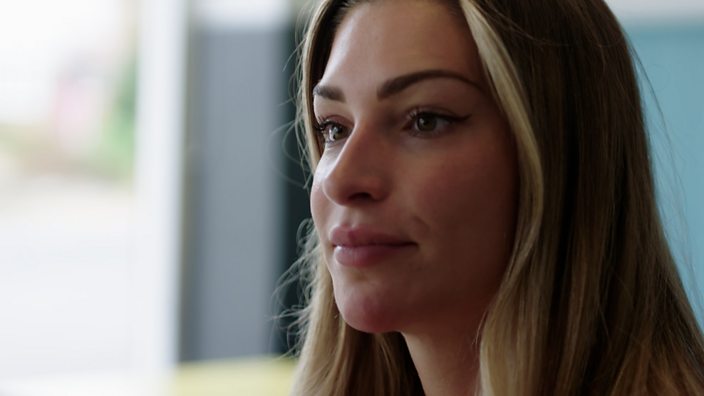 bbc / summer films
bbc / summer filmsZara also believes social media companies need to do more to combat the promotion of eating disorder content on their platforms, including by users who use coded terms to evade existing content bans.
With TikTok especially, she says, “you can get yourself into a real hole and the algorithm can really start to suggest posts that you might like based on your searches. It's almost a bit of a trap.”
A TikTok spokesperson said: “We care deeply about the health and well-being of our community. We do not allow content depicting, promoting, normalising, or glorifying disordered eating, however we do support members of our community sharing their personal experiences with these issues in a safe way to raise awareness and find support.”
Zara adds: “The main thing I've learnt [while making this documentary] if someone is going through any form of eating disorder or disordered eating, is to talk. Eating disorders can be extremely isolating, they can tear you away from your family and your friends and make you feel really ashamed of what you're going through.
“You deserve support and just know that no-one is going to judge you. There is help out there.”
Originally published on 21 November 2022.
